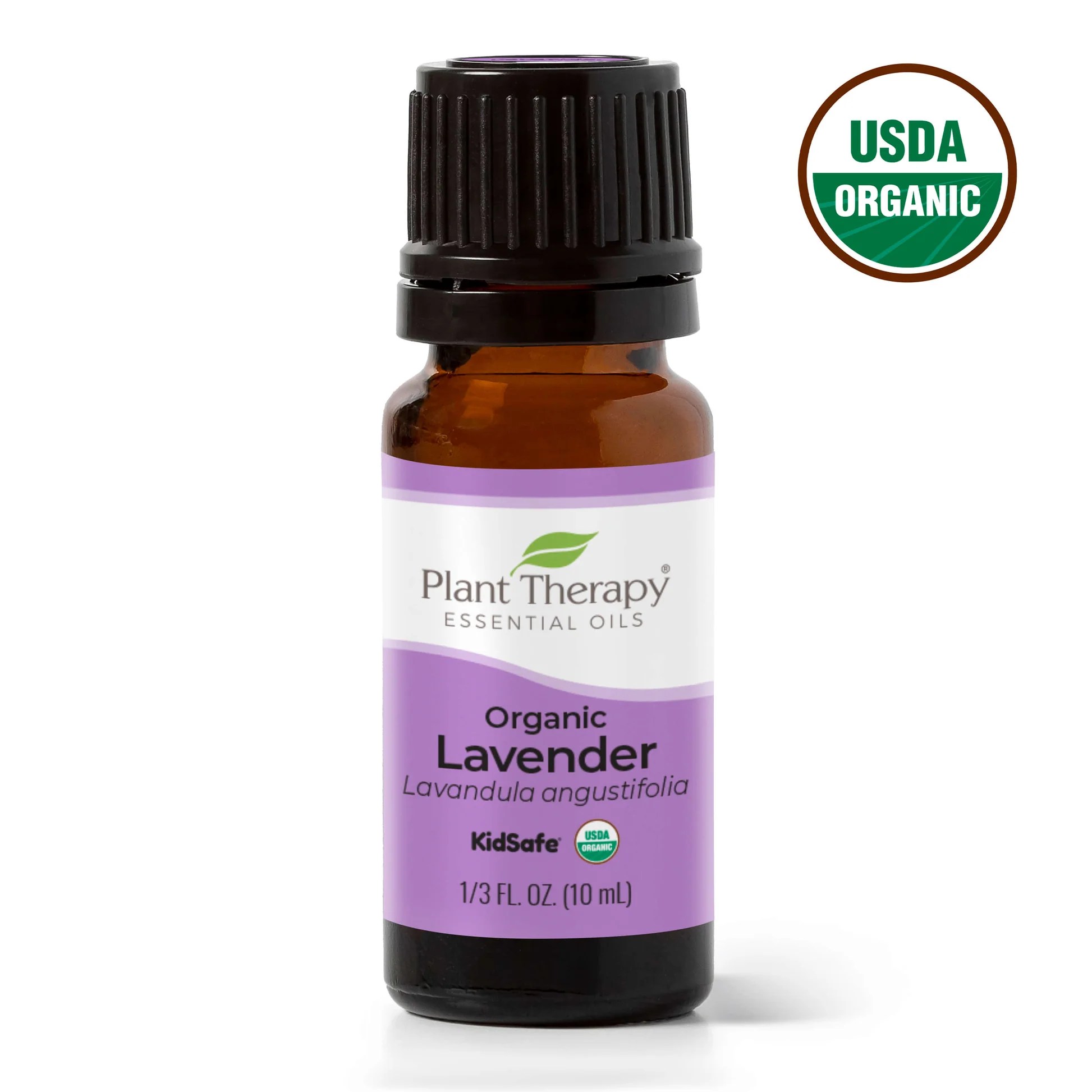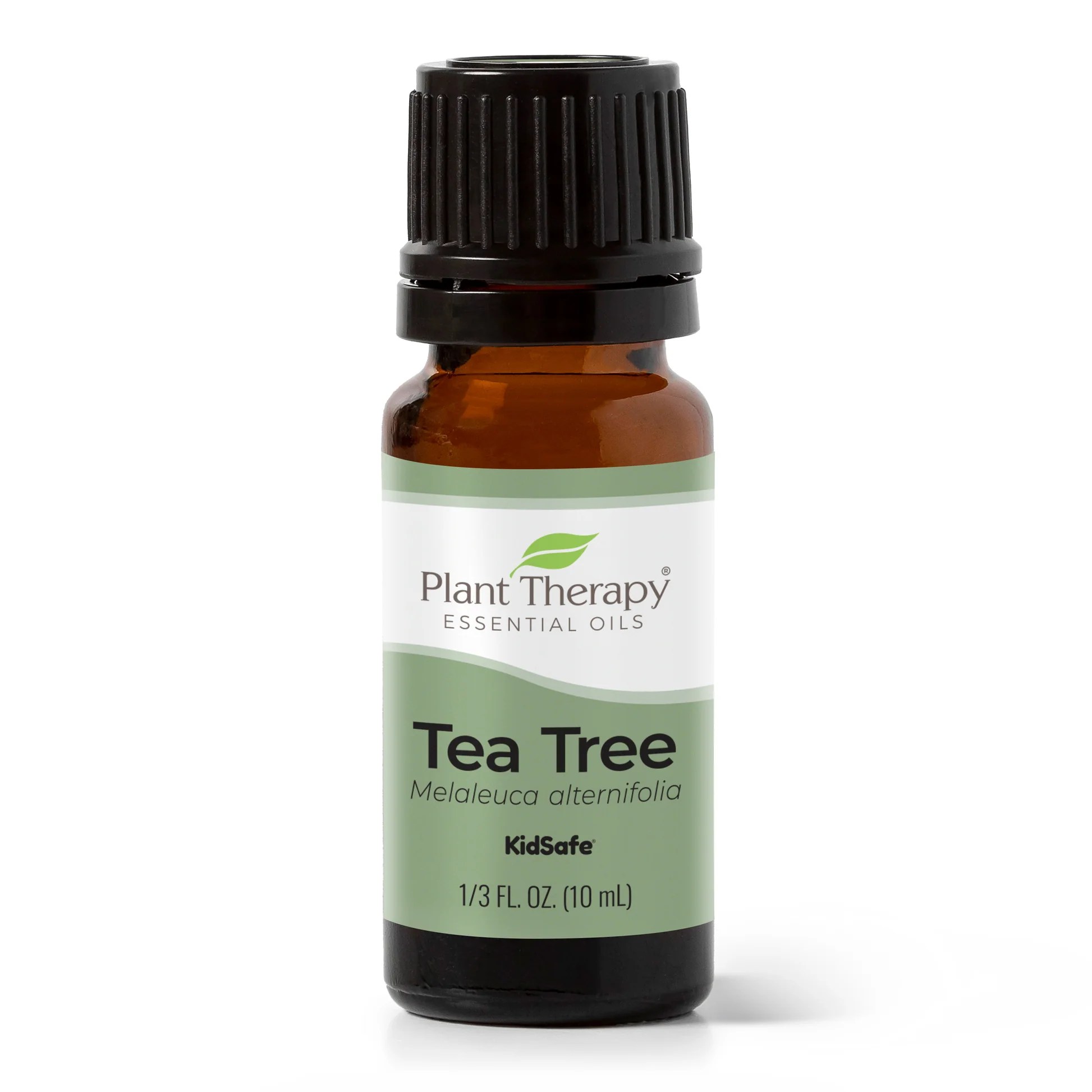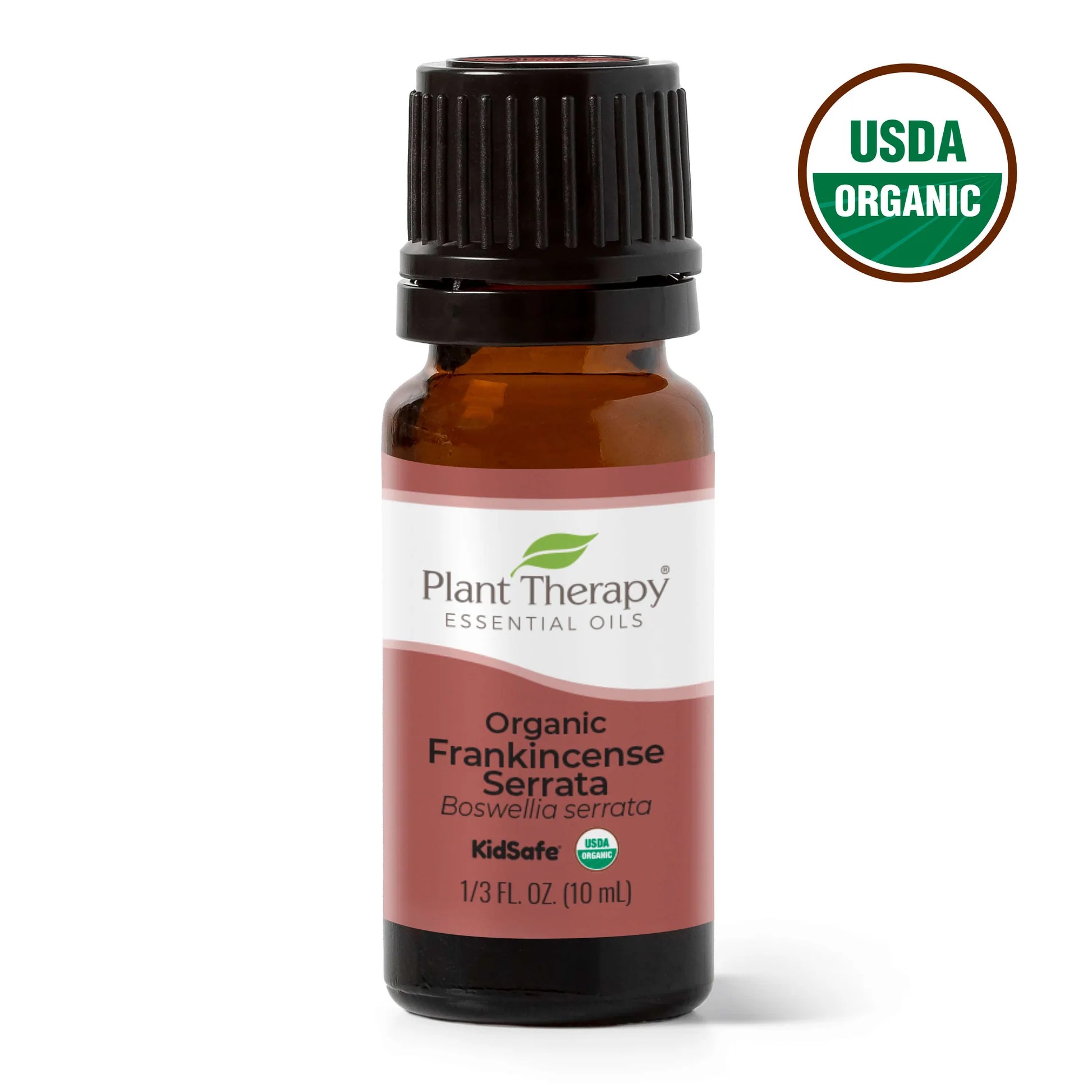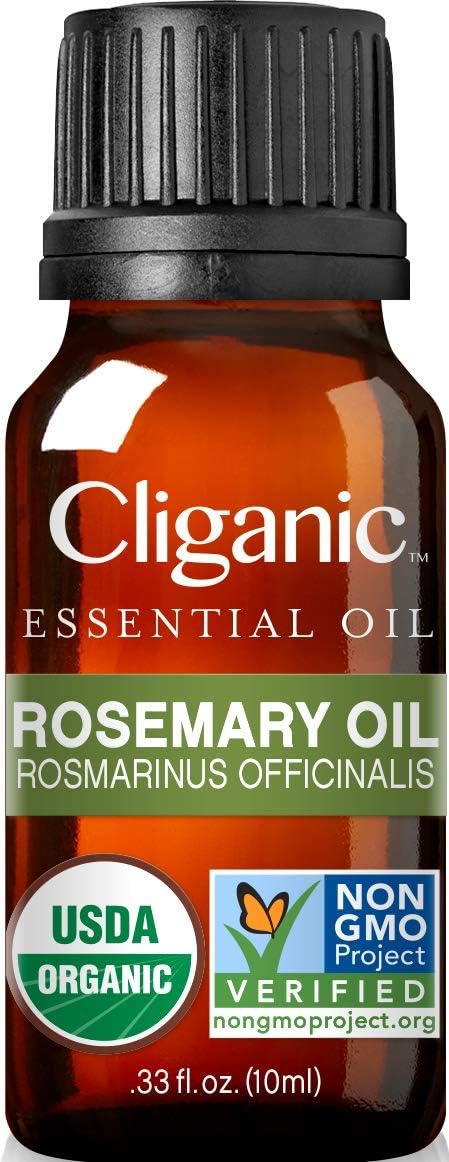Essential oils may be widely known for their soothing and revitalizing scents, but they have topical benefits, too. The topic of essential oils for skin has amassed over 23 million views on TikTok, making it a growing skin-care category here in 2023. However, before you start slathering them on your skin, it’s important to know that essential oils are incredibly potent, making them more likely to cause irritation.
“Essential oils are highly concentrated plant extracts that contain the aromatic compounds and active constituents of the plant,” says Sonia Badreshia-Bansal, MD, a board-certified dermatologist with RealSelf. Keep reading to find out how to use essential oils on skin, plus, the best essential oils for skin benefits.
How do essential oils work on skin?
When applied to the skin, essential oils can interact with the body through three primary mechanisms:
1. Absorption
“Essential oils are absorbed through the skin and can enter the bloodstream,” says Dr. Badreshia-Bansal. “This allows their beneficial compounds to circulate throughout the body.”
2. Topical Application
“Essential oils can provide localized benefits to the area of application, such as soothing irritated skin, reducing inflammation, or providing antioxidants,” says Dr. Badreshia-Bansal.
3. Aromatherapy
“The aromatic molecules of essential oils can be inhaled, influencing mood and emotions through the limbic system in the brain,” she explains.
Today, we’re here to focus primarily on the essential oils skin benefits you get when you apply them topically.
How to apply essential oils to skin
By the end of this article, you’ll be eager to incorporate essential oils into your skin-care routine. Whatever you do, though, don’t rush the process and apply the potent oils directly. It’s important to dilute them in a carrier oil first.
“Essential oils are extremely concentrated and can be too potent for direct application to the skin,” says Dr. Badreshia-Bansal. “Diluting them with a carrier oil helps reduce the risk of skin irritation or sensitization.”
In addition to preventing irritation, carrier oils maximize the application zone of an essential oil. “Carrier oils provide a medium for essential oils to spread across the skin’s surface, ensuring even application and better absorption,” says Dr. Badreshia-Bansal.
Suffice it to say that when shopping for essential oils, you’ll also want to add a carrier oil or two to your cart. “Common carrier oils include jojoba, coconut, sweet almond, and olive oil,” says Dr. Badreshia-Bansal. “They are generally well-tolerated by the skin and can even offer their own benefits, such as moisturization and nourishment.”
Broadly speaking, your final skin-ready concoction should contain no more than 1-3 percent of the potent essential oil in a nourishing carrier oil. This equates to roughly 12 drops of essential oil per ounce of carrier oil.
Precautions
Although essential oils tout numerous complexion benefits, they’re not without faults. “Nearly all essential oils contain allergens and are a common cause of allergic contact dermatitis,” warns Hadley King, MD, a board-certified dermatologist specializing in medical and cosmetic dermatology.
Specifically, Dr. Badreshia-Bansal says that certain essential oils, like citrus oils, “can increase sensitivity to sunlight, potentially leading to sunburn or skin pigmentation changes.” Additionally, she says that some people have pre-existing botanical allergies, which can be triggered by essential oils. “Some essential oils can interact with medications or medical conditions,” she adds. “For example, tea tree and lavender oils have hormonal effects and should be used with caution in individuals with hormone-related conditions.”
Because of this, it’s vital to not only use a carrier oil but to also perform a patch test before slathering an essential oil all over a given area of skin. Wait 24 hours to determine how your skin reacts to the oil before moving forward with larger application areas.
“If you have specific health concerns, medical conditions, or are pregnant, it’s advisable to consult a dermatologist, healthcare professional, or aromatherapist before using essential oils for safety,” Badreshia-Bansal says. “They can provide personalized advice based on your individual skin type and needs.”
What to consider before buying
Shopping for essential oils for skin requires quite a bit of due diligence. In addition to irritation concerns, it’s important to keep a few other things in mind before adding one into your routine.
“Look for reputable brands that provide essential oils that are pure, unadulterated, and preferably third-party tested for quality,” Dr. Badreshia-Bansal recommends. Additionally, she says to look for essential oils that are stored in dark, glass bottles, which“protects them from light and air exposure, which can degrade their quality.”
You should also be wary of the labels. “Ensure the essential oil is labeled with its botanical name (genus and species) to confirm its specific source,” she says. “And be cautious of products labeled as ‘fragrance oil’ or ‘perfume oil,’ as these are synthetic and do not provide the same benefits as true essential oils.”
Now that you’re up to speed on the basics of essential oil sourcing and application, ahead, find the top 10 best essential oils for skin.
Best essential oil for sensitive skin: chamomile oil
“Chamomile oil soothes and reduces inflammation, making it helpful for sensitive or irritated skin conditions like eczema or rosacea,” says Dr. Badreshia-Bansal. Her favorite way to use chamomile oil? Mix it with a carrier oil and massage it into your skin for a calming facial treatment.
Best essential oil for dry skin: neroli oil
“A hydration hero, neroli essential oil helps to both replenish and lock in moisture within our cells,” says Ava Shamban, MD, a RealSelf board-certified dermatologist and founder of Ava MD Dermatology. “It also has the emollient powers to soften and protect the skin barrier for dry or dehydrated skin, giving off a gorgeous glow.” If you’re looking for one of the best essential oils for glowing skin, you’ve found it in the form of this floral extract.
To add it to your regimen, mix a drop or two of neroli oil into a teaspoon of carrier oil and apply it to your face, neck, and chest.

Best essential oil for combination skin: ylang-ylang oil
Ylang Ylang oil is one of the trickier essential oils, as it’s known to be a common cause of contact dermatitis, warns Dr. King. That said, it still offers notable benefits, so as long as your patch test goes well, this is one essential oil that’s particularly great for combination skin. “It balances sebum production, improves skin elasticity, and has a soothing effect,” explains Dr. Badreshia-Bansal.
To use ylang-ylang oil, Dr. Badreshia-Bansal recommends mixing it with a carrier oil and applying the same way you would a facial oil (as the last step of your routine to seal in hydration and active ingredients). For an even more calming experience, she says to add the essential oil-infused carrier to a warm bath and hop in for a soak.

Best essential oil for irritated skin: lavender oil
Aside from being one of the best-smelling essential oils, derms consider lavender to be one of the best oils for skin repair. “Lavender essential oil calms and soothes irritated skin, possesses anti-inflammatory properties, and promotes wound healing,” says Dr. Badreshia-Bansal. “It’s [great] for all skin types, particularly sensitive or irritated skin.”
To add lavender oil to your skin-care routine, she says to combine a few drops with a carrier oil, like jojoba or coconut oil, and apply it as a moisturizer or add it to bathwater.

Best essential oil for oily skin: jojoba oil
Jojoba oil is technically a carrier oil, but it has a slew of benefits on its own. “It provides excellent moisturization, balances natural oil production, and is non-comedogenic,” says Dr. Badreshia-Bansal, noting that it’s fabulous for all skin types, especially those that are oily or combination.
Unlike classic essential oils, jojoba oil for skin can be used solo as a moisturizer—it doesn’t have to be mixed with a carrier oil.

Best essential oil for acne-prone skin: tea tree oil
“Known for its antimicrobial properties, tea tree oil is effective against acne-causing bacteria and helps control excess oil production,” says Dr. Badreshia-Bansal. Because of this, it’s a great ingredient addition for oily, acne-prone, and combination skin.
To use, Badreshia-Bansal recommends mixing a few drops of tea tree oil with a carrier oil and applying it as a spot treatment, or incorporating it into a gel cleanser.

Best essential oil for acne prevention: oregano essential oil
Oregano essential oil is another common culprit for contact dermatitis but its benefits outweigh its risks (that is, as long as your skin can handle it). “It has antimicrobial properties—it helps to kill two acne-associated bacterias: Propionibacterium and Staphylococcus epidermidis,” says Dr. King. King. Because of this, it can help treat current breakouts and prevent future ones.
To reap the rewards of oregano essential oil for yourself, mix a few drops into a carrier oil, cleanser, or moisturizer.

Best essential oil for aging skin: frankincense oil
“Frankincense oil promotes skin cell regeneration, tightens and tones, and reduces the appearance of fine lines and wrinkles,” says Dr. Badreshia-Bansal. It’s one of the best essential oils for skin tightening, making it great for mature skin and anti-aging routines.
To add frankincense oil to your routine, Dr. Badreshia-Bansal says to blend it with a carrier oil and use it as a facial serum. Alternatively, you can add a drop or two to a nourishing moisturizer for an anti-aging boost.

Best essential oil for hormonal skin: sage oil
According to Dr. Badreshia-Bansal, sage essential oil is a great pick for hormonal skin thanks to its hydrating, balancing nature. Dr. Shamban tacks onto this, noting that sage oil is “a thirst-quenching drink for tired, dull or dehydrated skin. It’s rich in vitamin A and calcium, which are key to cell regeneration and replacing old cells with new collagen and elastin.” And since it acts as a natural astringent, it also helps balance combination, oily, and acne-prone skin types.
Intrigued? Add sage oil to your skin-care routine by mixing a few drops into a carrier oil or your favorite moisturizer. Apply and marvel at the results.

Best essential oil for dandruff: rosemary oil
Rosemary oil is great for the skin as well as the scalp. “A strong essence to neutralize free radicals, rosemary oil helps with hyperpigmentation and uneven skin color and tone with astringent properties that offer a tightening effect,” says Dr. Shamban. “It also aids in boosting blood circulation and oxygenation which will give your skin a healthy glow from the inside out.”
Meanwhile, Dr. King focuses on the scalp benefits rosemary has to offer. “Rosemary oil contains antimicrobial and anti-inflammatory properties which can help manage dandruff and scalp acne,” she points out.
As with all essential oils, it’s best infused into a carrier oil and applied topically to the treatment area of choice.

